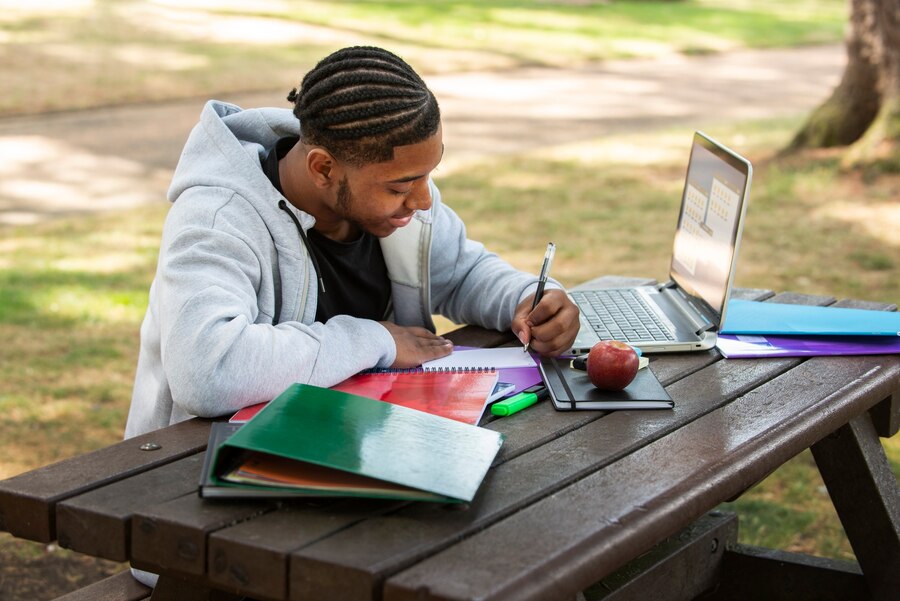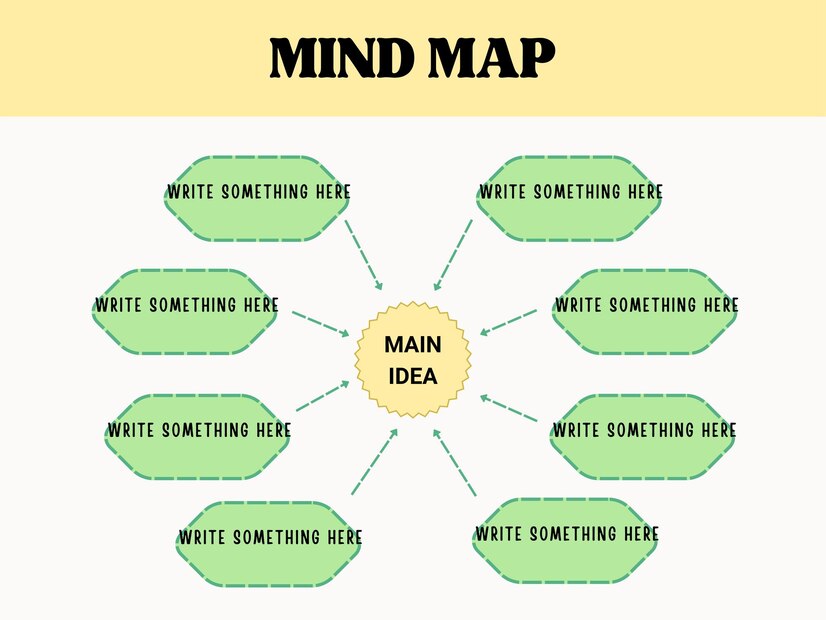If you’re a college student who spends countless hours studying but still struggles to remember key concepts when it matters most — you’re not alone. Many students face the same challenge: they put in the time, do the readings, attend the lectures, and still find their grades don’t reflect their efforts.
The truth is, studying harder isn’t always the solution. Studying smarter — using techniques that help your brain actually retain and recall information — makes all the difference.
We’ll explore proven, science-backed study methods like active recall, spaced repetition, mind mapping, and more. These strategies are designed to help you understand and remember information more effectively, without adding extra hours to your schedule.
Whether you’re preparing for finals, weekly quizzes, or just want to stay on top of your coursework, these techniques can help you make the most of your study time — and start seeing results.
1. Active Recall: Stop Re-reading and Start Retrieving

Let’s start with a truth bomb: re-reading your notes over and over again doesn’t work.
It feels productive, but it’s actually passive. Your brain isn’t being challenged. Instead, try active recall — it’s like taking mini-tests during your study sessions.
Here’s how you do it:
- After reading a concept, close the book and try to recall the main points without looking.
- Use flashcards (apps like Anki or Quizlet are great).
- Ask yourself questions like, “What did I just learn?” or “Can I explain this to a 10-year-old?”
This forces your brain to pull information out, which strengthens memory pathways. Basically, you’re training your brain like it’s a muscle. The more you recall, the more you remember.
2. Spaced Repetition: Don’t Cram, Space It Out
Ever studied the night before and forgot everything the next week? That’s what cramming does. Instead, space out your studying using the Spaced Repetition technique.
Here’s the simple idea:
- Review info at increasing intervals — for example: Day 1, Day 3, Day 6, Day 10.
- This taps into the “forgetting curve” and helps beat it.
You can use apps like Anki (yep, again!) which automatically schedule your flashcards using spaced repetition. It’s like having a personal memory coach in your pocket.
3. Mind Mapping: Make Your Notes Look Like a Brainstorm

If you’re more of a visual learner, you’ll love this. Mind maps help you see the big picture.
Instead of linear notes, draw your topic in the center of a page and branch out with subtopics. Use colors, arrows, and doodles to connect ideas.
Why it works:
- It helps you organize information logically.
- It shows how concepts relate to one another.
- It engages both sides of your brain — logical and creative.
Pro tip: Try creating a mind map after studying a topic to summarize everything. It’ll help you see if you really understand it.
4. The Feynman Technique: Teach It Like a Pro

Richard Feynman (super genius physicist guy) had a simple trick to understand anything deeply: teach it to someone else.
Here’s how to do it:
- Pick a topic.
- Explain it out loud in your own words like you’re teaching a friend — or your pet, or a wall (no judgment).
- If you get stuck, go back and review.
- Simplify it even more.
When you can teach something simply, you really understand it.
5. The Pomodoro Technique: Study Smarter, Not Longer
Sometimes, your brain is tired — not dumb. Studying for hours without a break leads to burnout and zero retention.
Try the Pomodoro Technique:
- Study for 25 minutes.
- Take a 5-minute break.
- After 4 rounds, take a longer 20–30-minute break.
These mini-sprints keep your brain fresh and focused. Plus, knowing a break is coming helps you power through the session.
>>>Get the 2-Hour Monthly Goal Planner and Tracker
6. Practice Questions: Do What You’ll Be Tested On

You wouldn’t train for a soccer game by just reading about soccer, right? Same with exams. The best way to prepare is to practice what you’ll be tested on.
- Do past papers.
- Find practice questions.
- Simulate test conditions.
It gives your brain real-world experience, helps you identify weak spots, and builds confidence.
Final Thoughts: It’s Not About Studying Harder, It’s About Studying Smarter
You’ve already got the drive — you’re putting in the hours. Now it’s time to tweak the how. Mix in these techniques and watch your brain actually hold on to what you’re studying.
And don’t try to do all of them at once. Start small. Pick one or two techniques and build from there.
Remember, you’re not alone in this. Struggling to remember stuff doesn’t mean you’re not smart. It just means your study strategy needs an upgrade.









